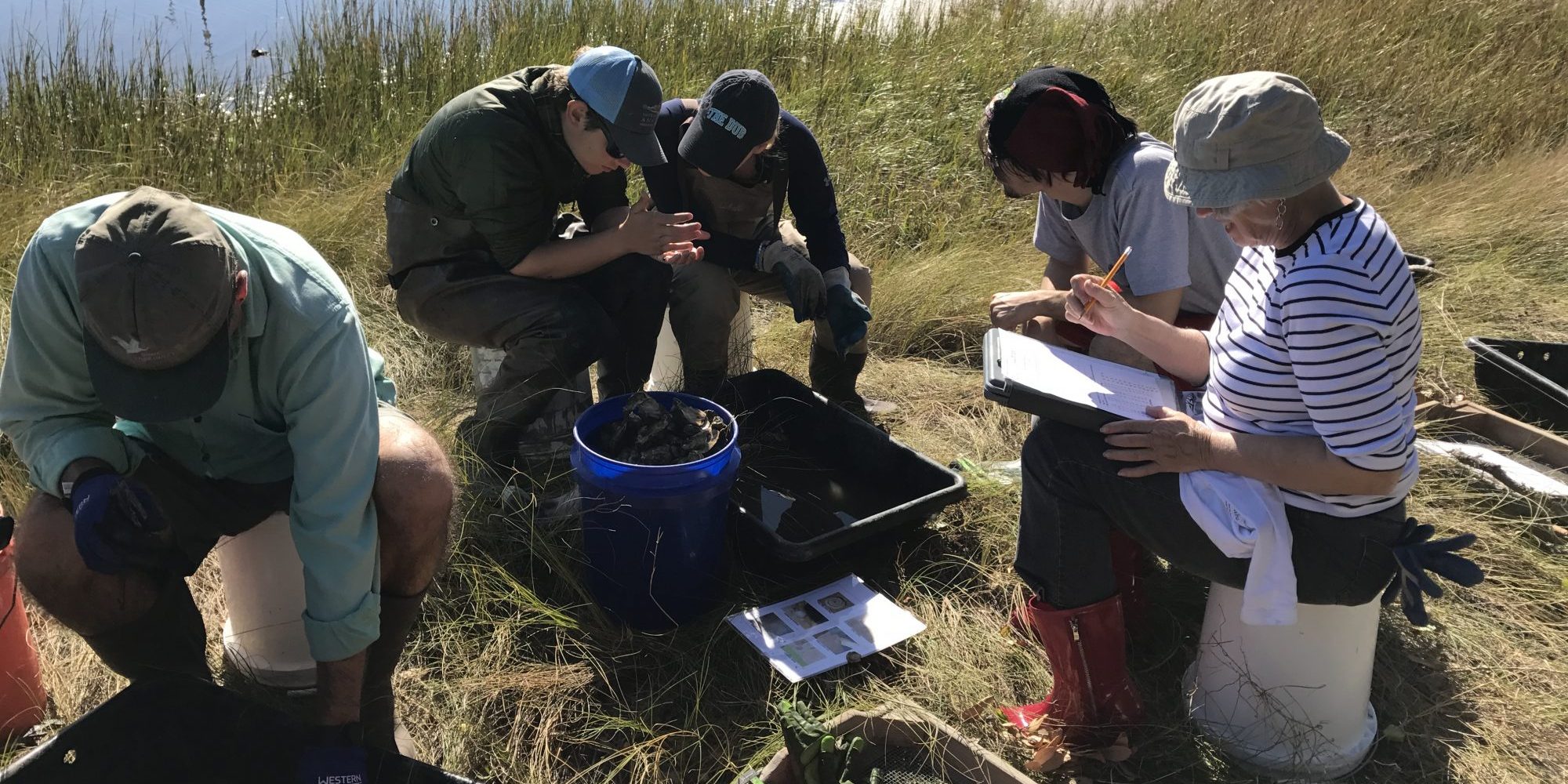Chefs and diners covet what they consider to be the “Cadillac” of oysters that grows in Stump Sound in Onslow County. The clean fresh and salt water that mix together in the sound is perfectly balanced to produce large, firm and tasty oysters. Now thanks to a $75,000 grant to the North Carolina Coastal Federation provided by the N.C. Land and Water Fund, local people will work together with water quality engineers and scientists to find ways to maintain water quality and reduce localized flooding so future generations can continue to eat the shellfish Stump Sound grows.
Stump Sound is designated as Outstanding Resource Waters, open shellfish waters, and a primary nursery area by the N.C. Department of Environmental Quality. These classifications are meant to protect the existing uses of the sound for shellfishing, but in recent years its water quality has declined. Shellfish beds are now often closed to harvest following more frequent rain events. The culprit is larger amounts of polluted stormwater runoff that flows into the sound from surrounding land uses.
“Stump Sound is a national treasure for shellfishing, fishing and recreation that must be protected and restored,” said Keith Walls, a marine scientist and local owner of Falling Tide Oyster Co. He added, “We need effective watershed management that prevents and reduces polluted runoff from entering the sound.”
“Stump Sound has been loved by the Ocean City community for over 70 years,” said local resident Carla Torrey, president of the Ocean City Beach Citizens Council. “We cherish the economic, cultural and environmental benefits the Sound gives us, and we’ll help make this plan a way to perpetuate its health and productivity,” said Torrey.
Jan Farmer, a federation coastal ambassador and area resident, adds, “As a resident of the Stump Sound area, I am very excited to be involved in this project and look forward to the watershed plan providing a blueprint for future protection and improvement of our waters for years to come. I am also hopeful that the plan will bring many different groups within our community together to work toward a common goal.”
The plan will identify specific actions to reduce the volume of polluted stormwater runoff that flows into the sound. It will focus on ways to protect, restore and mimic natural hydrology of the watershed by encouraging both simple as well as complex land management actions. These actions may include the use of nature-based stormwater strategies such as identifying priority locations for investments in land conservation, wetland restoration and stormwater reduction techniques for existing and planned land uses. The project will engage diverse community stakeholders in plan development. Once complete, the plan will be instrumental in helping to secure additional funds to implement key strategies identified.
“Community involvement and the participation of federal, state and local agencies, scientists as well as the people who make a living from the Sound will be key to the success of this plan,” said Tracy Skrabal, the federation’s coastal scientist and project manager. “Once complete, the plan will be the foundation of work that must continue to ensure that Stump Sound remains clean and productive for all of us that live, work and play in its waters.”
The North Carolina Coastal Federation works with local governments, businesses and coastal communities to embrace nature-based stormwater strategies to reduce flooding, improve water quality and help balance economic development with natural resource management. To learn more about our work for clean water visit , https://www.nccoast.org/protect-the-coast/stormwater.

